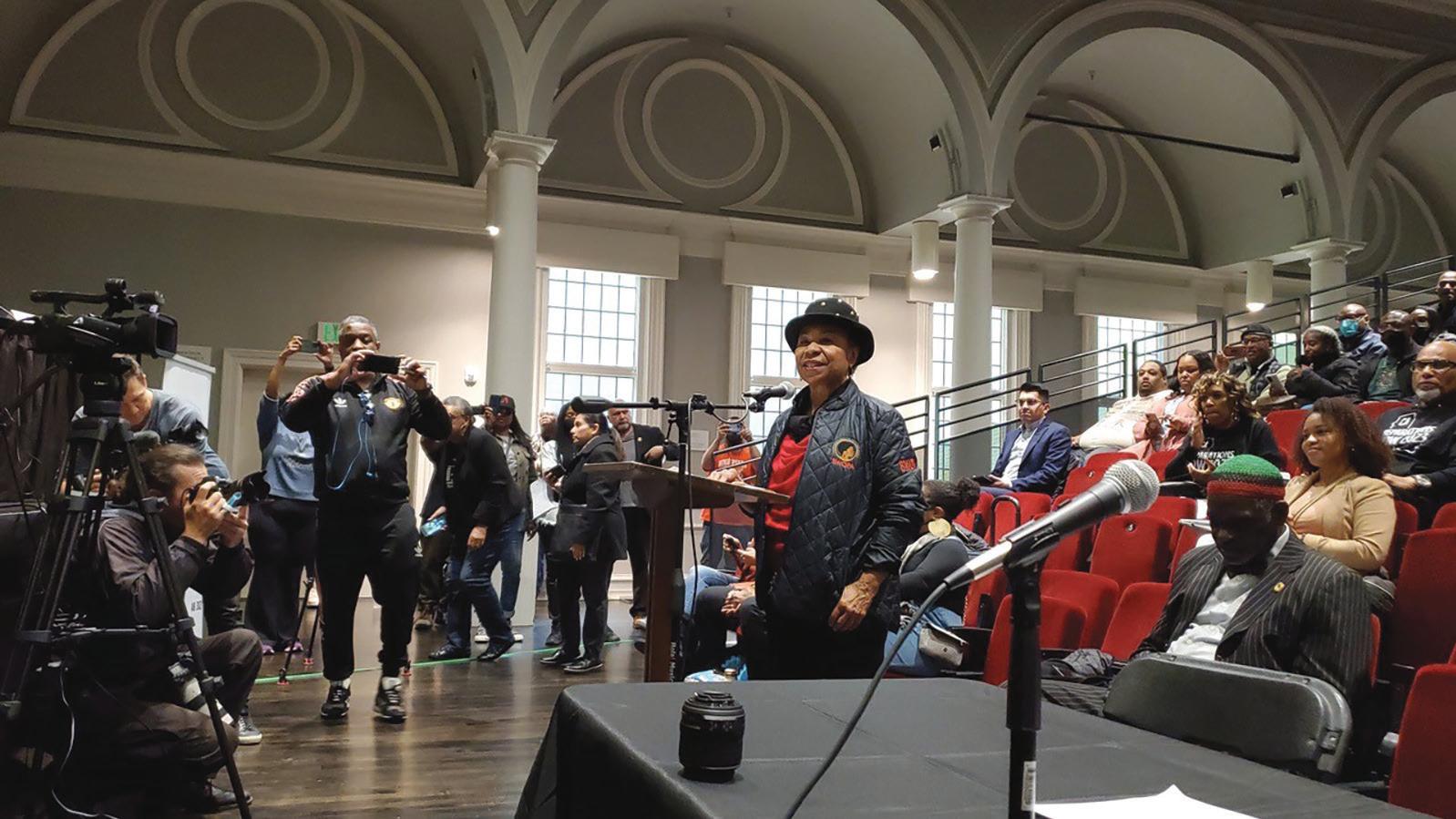
2 minute read
Reparations Task Force Concludes 15th Meeting

CaliforniaBlack Media
Advertisement
On May 6th, the California Task Force to Study and Develop Reparation Proposals for African Americans held its 15th meeting and voted on its final report. The report must be submitted to the California legislature by the end of June.
During the meeting held at Mills College of Northeastern University in Oakland, the nine-member task force finalized its recommendations for compensating Black Californians for state laws, policies and practices that disproportionately and negatively affected African Americans. The final report which will be available to the public is expected to be about 1,000 pages long.
Task force chair and Los Angeles attorney Kamilah Moore closed out the one-day meeting by thanking “the community of eligibility for attending” the meeting and reflecting on the activities that occurred for nearly two years since the group first convened.

“I know it might have been tough in some spots but I just want to say: stay encouraged. History is repeating itself,” Moore said. “When we think about what Callie House and Isaiah Dickerson went through, it was actually federal agencies U.S. Postal Office and U.S. DOJ (Department of Justice), the US Pension Office that worked to hinder the free people movement for pensions. So, just stay encouraged and know that justice will prevail at the end of the day.”
House and Dickerson were leaders in the National ExSlave Mutual Relief, Bounty and Pension Association, the first organization to push for reparations for slavery. Among the recommendations made by the task force is for the state of California to issue a formal apology from the state of California. The implied admission of guilt should mitigate the harm historically inflicted on the Black community, task force members say.
The report will contain “a non-exhaustive list” that includes “barbarities carried out on behalf of the State by its representative officers, governing bodies, and the people.”
“The Legislature must apologize on behalf of the State of California and the People of California for the perpetration of gross human rights violations and genocide of Africans who were enslaved and their descendants through public apology, requests for forgiveness, censure of state perpetrators, and tributes to victims,” the report states. “But the Task Force does not recommend the Legislature issue an apology without taking other required steps recommended by the Task Force to conform to the international standards for satisfaction; such an apology would be hollow and ineffective.”
The draft states that the apology would address the “atrocities committed by California state actors who promoted, facilitated, enforced, and permitted” under the institution of chattel slavery.” The final draft includes evidence provided by the California Department of Justice (DOJ) of African Americans denied their fundamental liberties and humanity throughout the state’s history, from before the Civil War to the present.
“To be effective, a considerable number of survivors and their relatives must participate in the development of the apology. As occurred with the apology to California tribal communities, the Legislature should establish a
Continued on page A2










